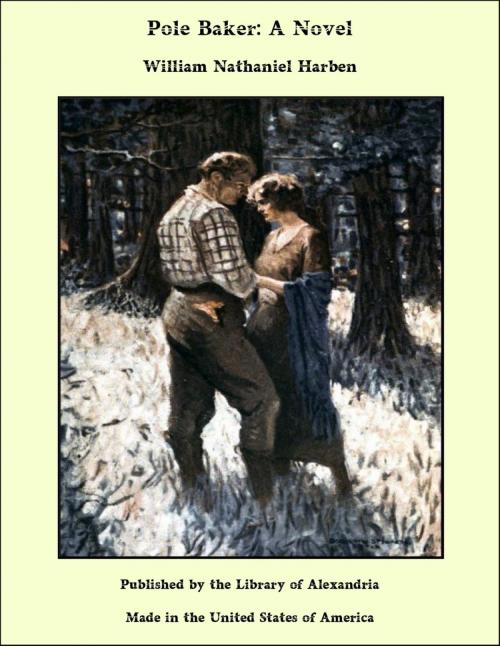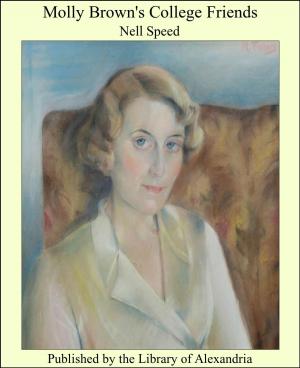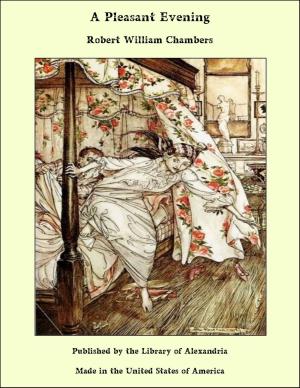| Author: | William Nathaniel Harben | ISBN: | 9781465623331 |
| Publisher: | Library of Alexandria | Publication: | March 8, 2015 |
| Imprint: | Language: | English |
| Author: | William Nathaniel Harben |
| ISBN: | 9781465623331 |
| Publisher: | Library of Alexandria |
| Publication: | March 8, 2015 |
| Imprint: | |
| Language: | English |
THE planter alighted from the dusty-little train under the crumbling brick car-shed at Darley, and, turning his heavy hand-luggage over to the negro porter, he walked across the grass to the steps of the Johnston House. Here he was met by Jim Thornton, the dapper young clerk, who always had a curled mustache and oiled hair smoothed flatly down over his brow. “Oh, here you are, right side up, Captain Duncan!” he cried, cordially. “You can’t stay away from those level acres of yours very long at a time.” “No, Jim,” the short, thick-set man smiled, as he took the extended hand; “as soon as I heard spring had opened, I got a bad case of homesickness, and we left Florida. My wife and daughter came a week ago. I had to stop on business in Jacksonville. I always like to be here in planting season; my men never seem to know exactly what I want done when I am away. Jim, I’ve got a lot of fine land out there between the river and the mountains.” “I reckon you have,” laughed the clerk, as he led his guest into the hotel office. “There’s a neighbor of yours over there at the stove, old Tom Mayhew, who runs the big store—Mayhew & Floyd’s—at Springtown.” “Oh, I know him mighty well,” said Duncan. “How are you, Mayhew? What are you doing away from your beat? I thought you’d be behind that counter such fine weather as this.” “Trade’s dull,” said the merchant, who was a tall, spare-made man, about sixty-five years of age, with snow-white hair and beard. “Farmers are all at the plough, and that’s where they ought to be, Duncan, if they expect to pay anything on their debts this fall. I had to lay in some stock, and ran down to Atlanta day before yesterday. My young partner, Nelson Floyd, usually does the replenishing, but the books got out of whack and I left him to tussle with them; he’s got a better head for figures than I have. I’ve just sent to the livery-stable for a horse and buggy to take me out; how are you going?” “Why, I hardly know,” answered the planter, as he took off his straw hat and wiped his bald head with a silk handkerchief. “I telegraphed Lawson, my head overseer, to send somebody to meet me, and I was just wondering—” “Oh, you’ll be attended to all right, Captain Duncan,” said the clerk, with a laugh, as he stood at the register behind the counter. “Pole Baker was in here last night asking if you had arrived. He said he had brought a buggy and was going to drive you back. You will make it all right if Pole sobers up long enough to get out of town. He was thoroughly ‘how-come-you-so’ last night. He was in Asque’s bar raising holy Cane. The marshal ordered Billy to close at twelve, but Pole wouldn’t hear to it, and they came in an inch of having a fight. I believe they would if Mrs. Johnston hadn’t heard it and come down. Pole has more respect for women than most men, and as soon as he saw her at the door he hushed up and went to bed.”
THE planter alighted from the dusty-little train under the crumbling brick car-shed at Darley, and, turning his heavy hand-luggage over to the negro porter, he walked across the grass to the steps of the Johnston House. Here he was met by Jim Thornton, the dapper young clerk, who always had a curled mustache and oiled hair smoothed flatly down over his brow. “Oh, here you are, right side up, Captain Duncan!” he cried, cordially. “You can’t stay away from those level acres of yours very long at a time.” “No, Jim,” the short, thick-set man smiled, as he took the extended hand; “as soon as I heard spring had opened, I got a bad case of homesickness, and we left Florida. My wife and daughter came a week ago. I had to stop on business in Jacksonville. I always like to be here in planting season; my men never seem to know exactly what I want done when I am away. Jim, I’ve got a lot of fine land out there between the river and the mountains.” “I reckon you have,” laughed the clerk, as he led his guest into the hotel office. “There’s a neighbor of yours over there at the stove, old Tom Mayhew, who runs the big store—Mayhew & Floyd’s—at Springtown.” “Oh, I know him mighty well,” said Duncan. “How are you, Mayhew? What are you doing away from your beat? I thought you’d be behind that counter such fine weather as this.” “Trade’s dull,” said the merchant, who was a tall, spare-made man, about sixty-five years of age, with snow-white hair and beard. “Farmers are all at the plough, and that’s where they ought to be, Duncan, if they expect to pay anything on their debts this fall. I had to lay in some stock, and ran down to Atlanta day before yesterday. My young partner, Nelson Floyd, usually does the replenishing, but the books got out of whack and I left him to tussle with them; he’s got a better head for figures than I have. I’ve just sent to the livery-stable for a horse and buggy to take me out; how are you going?” “Why, I hardly know,” answered the planter, as he took off his straw hat and wiped his bald head with a silk handkerchief. “I telegraphed Lawson, my head overseer, to send somebody to meet me, and I was just wondering—” “Oh, you’ll be attended to all right, Captain Duncan,” said the clerk, with a laugh, as he stood at the register behind the counter. “Pole Baker was in here last night asking if you had arrived. He said he had brought a buggy and was going to drive you back. You will make it all right if Pole sobers up long enough to get out of town. He was thoroughly ‘how-come-you-so’ last night. He was in Asque’s bar raising holy Cane. The marshal ordered Billy to close at twelve, but Pole wouldn’t hear to it, and they came in an inch of having a fight. I believe they would if Mrs. Johnston hadn’t heard it and come down. Pole has more respect for women than most men, and as soon as he saw her at the door he hushed up and went to bed.”















